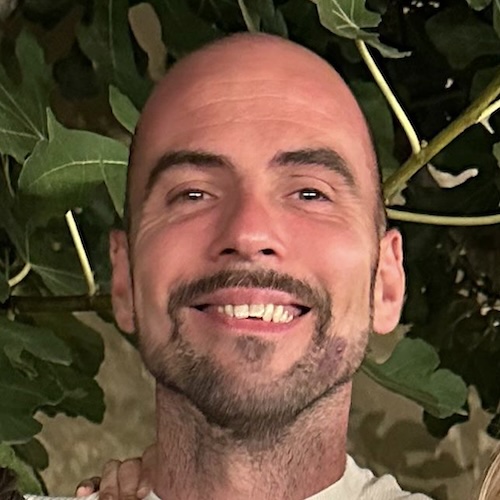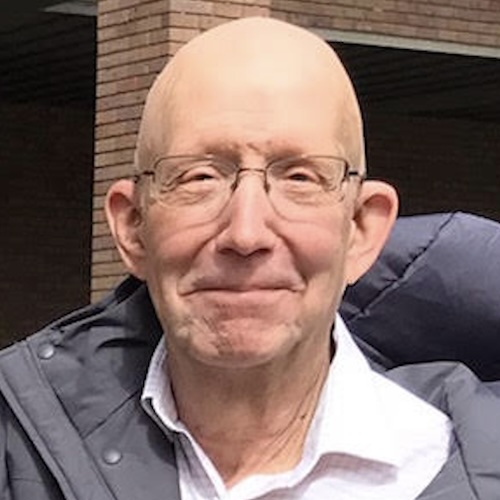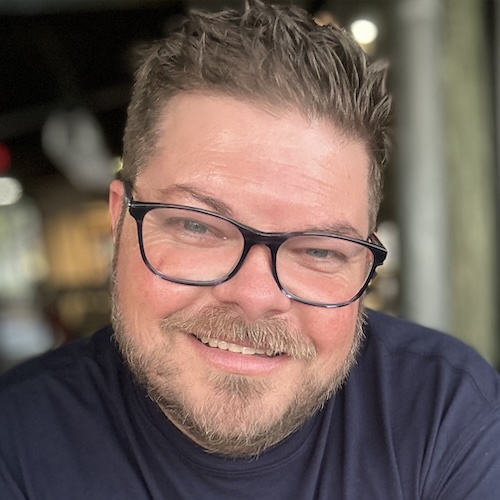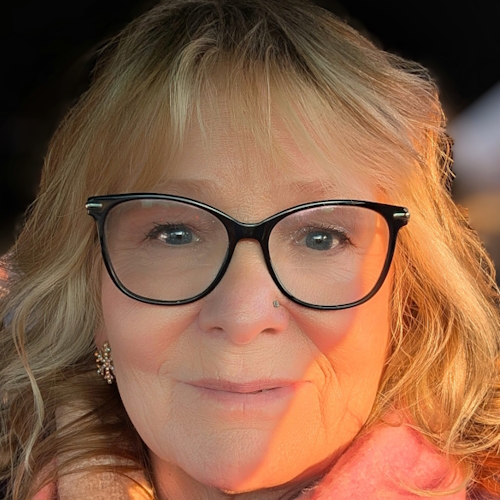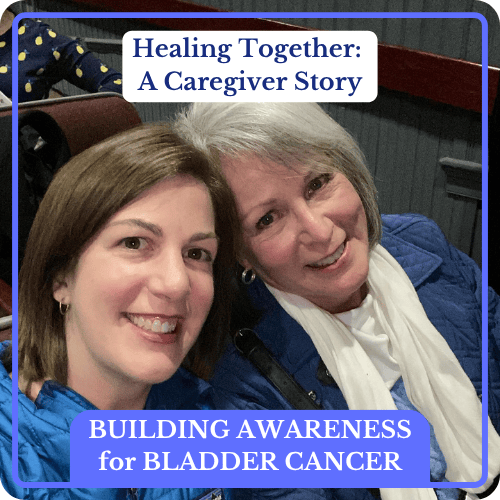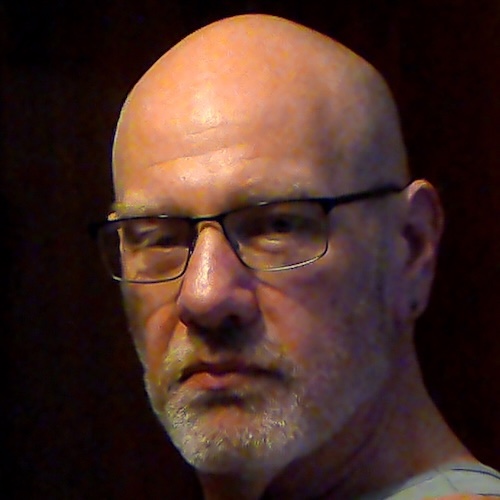From Bladder Cancer Caregiver to Advocate: David Garrigues Ronda’s Story of Love and Support
David, a devoted cancer caregiver and husband to Laurent Gemenick, shares his story about navigating bladder cancer with his spouse. From the first hint of blood in Laurent’s urine, their lives shifted dramatically. David stepped into the role of organizer, motivator, and emotional anchor, ensuring that Laurent needed to focus only on healing. Right away, they learned that getting multiple medical opinions was crucial. The first doctor recommended removing Laurent’s bladder entirely, but after consulting other specialists, they felt empowered to choose another treatment path.
Interviewed by: Taylor Scheib
Edited by: Chris Sanchez & Jeff Forslund
Throughout this experience, David emphasizes the importance of support. He shielded Laurent from overwhelming online information, took charge of logistics, and found guidance from the Bladder Cancer Association of France. Friends and family cooked meals, offered comfort, and made the hard days lighter. Together, David and Laurent created CANVES, an inclusive bladder cancer support group in Spain, where patients, doctors, and researchers collaborate to provide clear, empathetic guidance. Their mission is simple but powerful: to ensure that bladder cancer patients feel seen, are supported, and are never alone.
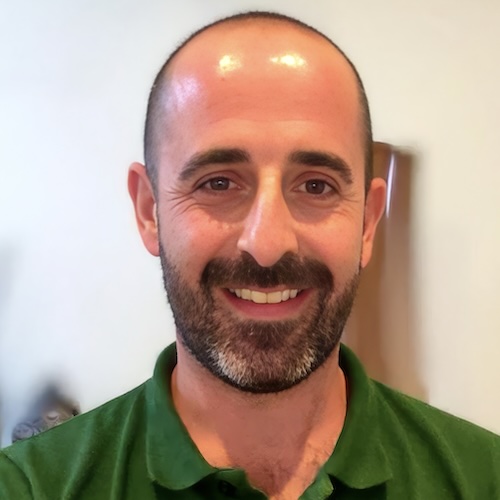
David’s advocacy reflects his deep compassion and determination. By speaking openly about symptoms, decisions, and emotional well-being, he hopes to encourage others to seek help early, ask questions, and lean on their communities. His message: no one should navigate cancer in isolation, and every cancer caregiver can play a key role in helping transform fear into confidence.
Watch David’s video and read through his story to learn:
- How he and Laurent turned fear into empowerment during bladder cancer care
- Why seeking multiple opinions gave them a better option and helped give real peace of mind
- How warm family dinners made all the difference on days filled with tests
- Why they started CANVES and how it is helping bladder cancer patients feel seen and understood
- The ways a simple phone call can transform a patient’s sense of hope and connection
- Partner’s Name:
- Laurent Gemenick
- Diagnosis:
- Bladder Cancer
- Symptom:
- Presence of blood in urine
- Treatment:
- Surgery: transurethral resection of bladder tumor (TURBT)
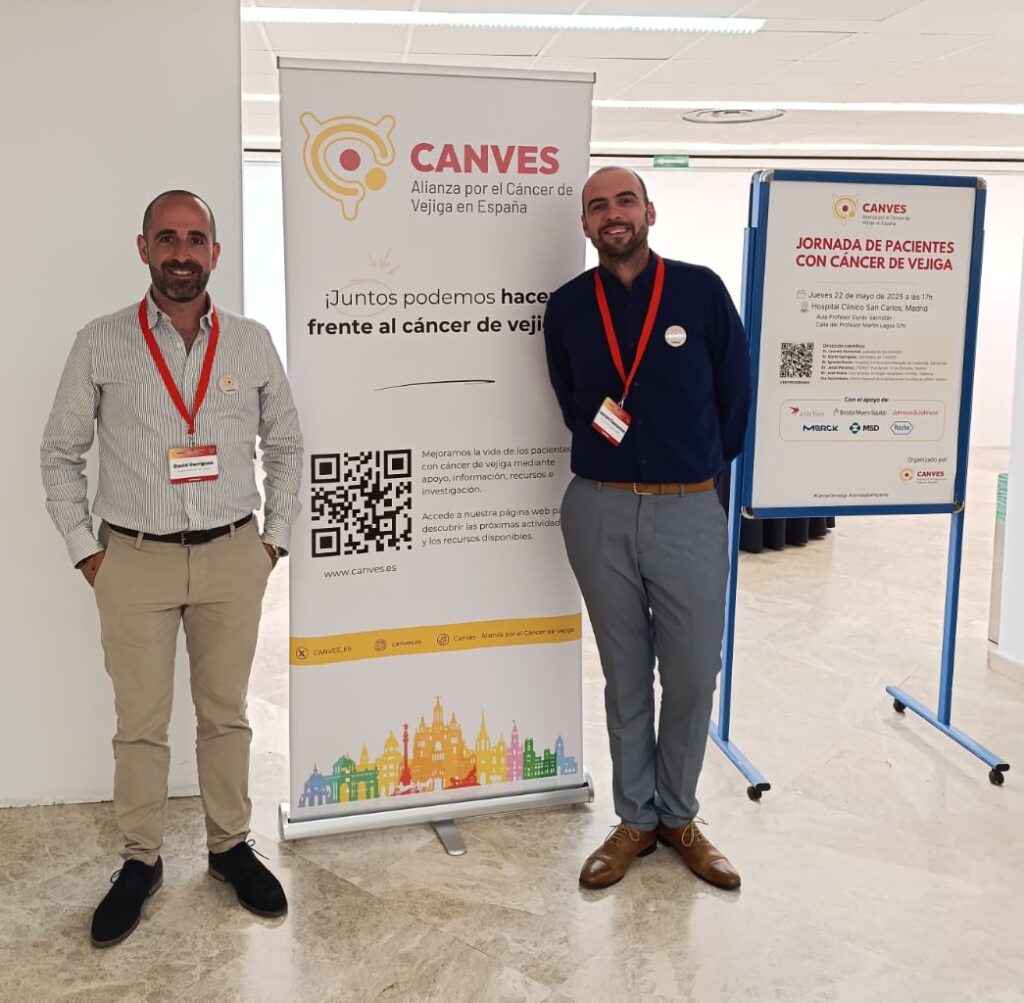

Thank you to Johnson & Johnson for supporting our patient education program. The Patient Story retains full editorial control over all content.
This interview has been edited for clarity and length. This is not medical advice. Please consult with your healthcare provider for treatment decisions.
- About Me
- How Laurent Found Out He Had Bladder Cancer
- Everything Changed When We Heard the Word “Cancer”
- We Found Treatment Decision-Making Complicated and Challenging
- It Was Critical to Get More Than One Opinion
- To Build Our Confidence, We Searched for Support
- We Started Our Own Bladder Cancer Group
- CANVES is Our Passion Project as a Patient and a Bladder Cancer Caregiver Advocate
- Part of Our Mission is to Break the Stigma Around Bladder Cancer
- I Want People to Know: You Are Not Alone
Talk to family, talk to friends. Ask for help. Don’t be alone. And above all, don’t miss any doctor’s appointments.
David Garrigues Ronda – Bladder cancer care partner
About Me
Hi, I’m David. I’m Laurent Gemenick’s husband and his cancer caregiver.
I went to live in Brussels to look for a job, and there I found a place to stay. Laurent and I got to know each other there over the course of a year. We lived together, we spent six years living together there. In the end, we got married here in Spain. We’ve been building our life together for 13 years.
Laurent smiles a lot, like me. He is always there for family and friends. I can count on him for whatever I need.
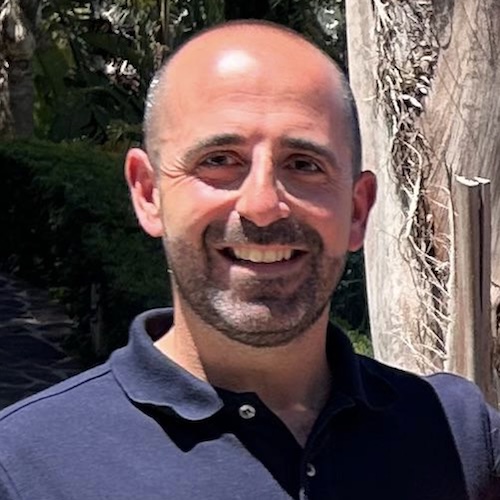
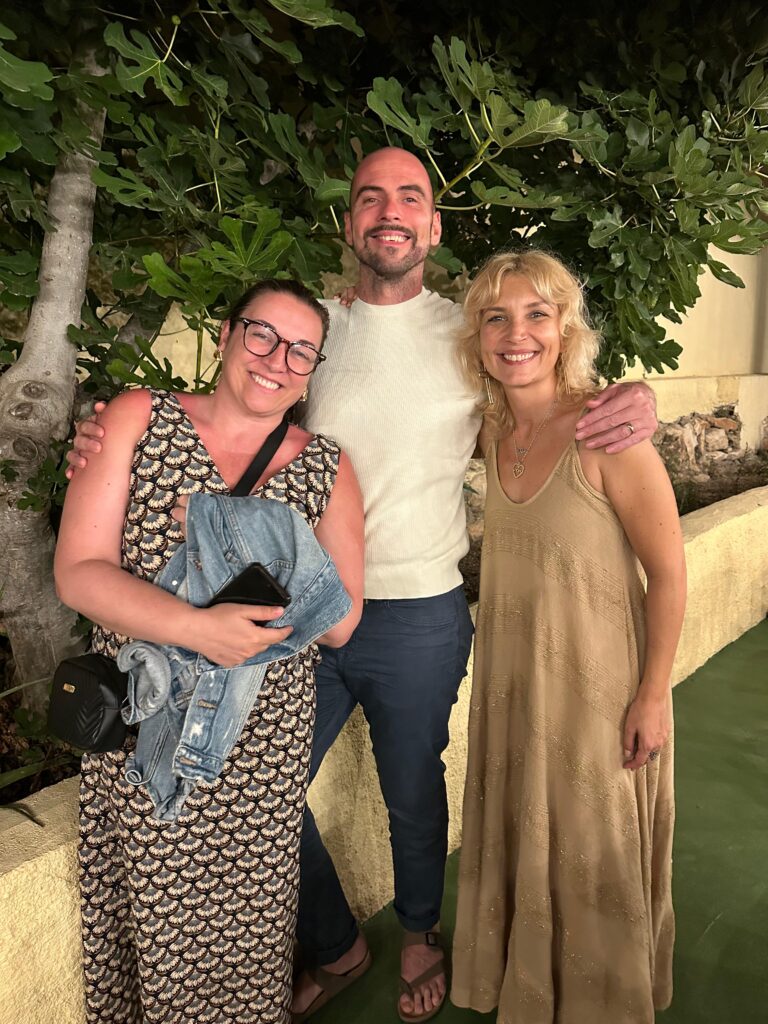
How Laurent Found Out He Had Bladder Cancer
In October 2022, Laurent began to experience unusual symptoms while urinating. The last drop of urine that came out was a little pink. Since then, we had been checking every day for a few days and seeing a doctor.
Laurent was eventually diagnosed with bladder cancer. I was with him the whole time. I was in charge of arranging appointments and processing all the paperwork with the insurance company. I took care of everything. I tried to get him to worry about as little as possible. He already had enough on his mind.
Everything Changed When We Heard the Word “Cancer”
It was very difficult, to be honest. Even the doctor had trouble saying the word “cancer.”
They talked about the tumor and such. But we had to take the word “cancer” out of the conversation.
After leaving the office, we looked at each other, talked before going to the car, and made up our minds about what we had heard. It was tough.
We had not heard about it before. We didn’t know we could have bladder cancer, and neither did our family and friends.
We Found Treatment Decision-Making Complicated and Challenging
It was, shall we say, a bit unusual. Laurent’s first doctor offered him a radical cystectomy. He said that there was no other option. They were going to operate and remove everything and create a neobladder. We didn’t like this option. It scared us.
We asked for three options. The doctor gave Laurent three propositions. The first was the removal of the bladder and the creation of a new one. The second involved chemotherapy and radiotherapy. The third and last was to conduct an operation and examinations every three months for the first two years to collect samples and analyze what [the tumor] was doing.
The doctor added that if Laurent was too scared, then the second option involving chemotherapy and radiotherapy would be the one to choose. But the doctor told him that he was young and strong and that we could try it without any problem. It was his decision. And so we decided to remain vigilant and do these very thorough reviews.
Of course, it was not only surgery that they would do every three months, it was also a CAT scan, an internal x-ray, urinalysis, blood tests, and so on.
It Was Critical to Get More Than One Opinion
We went to see five more doctors in total. It was all very scary. And the operation that was initially proposed to him was very risky. Not only would Laurent’s bladder be removed, but many more things would be affected inside his body. Also, my insurer told me, “You can get a second opinion, take advantage of it.”
We thought it was very interesting. They placed all the solutions in our hands. Of the five professionals we spoke with, four went one way and only the first one went the other way. That gave us much more confidence to go the way we chose.
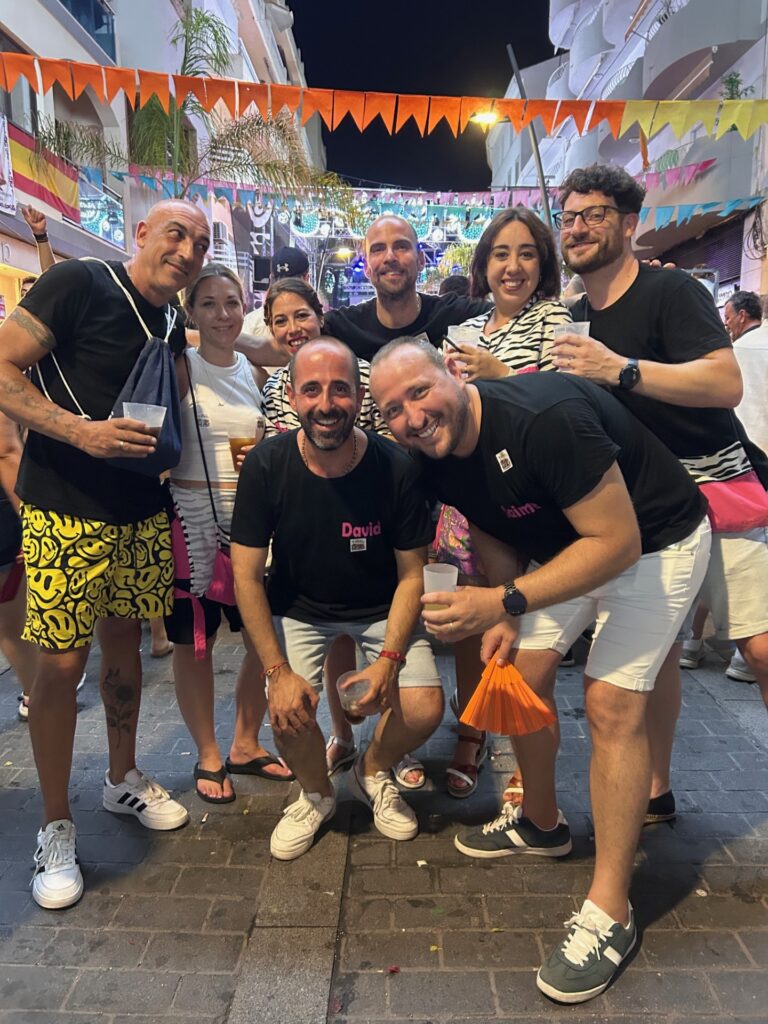
We thought it was very interesting. They placed all the solutions in our hands.
David Garrigues Ronda – Bladder cancer care partner
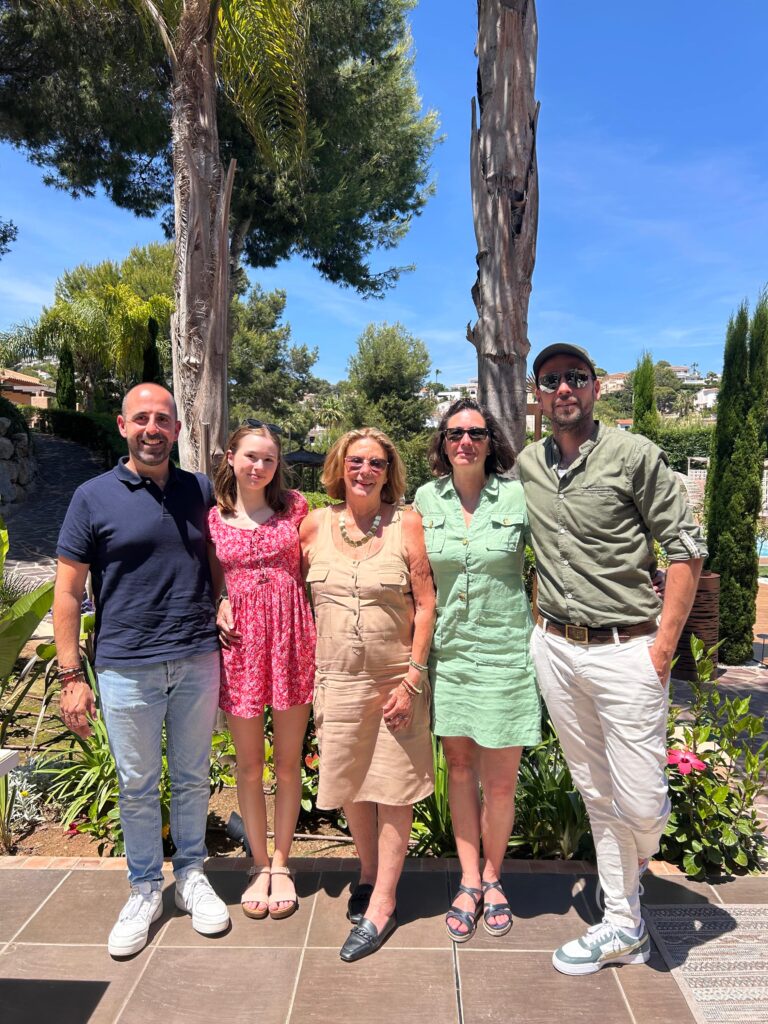
To Build Our Confidence, We Searched for Support
I forbade Laurent from looking for information online. I told him, “I will be your filter.” I searched and checked, but mostly found a lot of information for professionals that used very professional terms. In the end, the Bladder Cancer Association of France is the one that gave us the support and information we were looking for.
Our family and friends also supported us. Everyone was with us. For instance, we were coming from the city to do a test, and my mother was already ready with dinner. That helped us a lot. And then also, after a year had passed and we were more or less better, I told him we were going to hire a fitness coach who would help us, including with fitness and nutrition.
We Started Our Own Bladder Cancer Group
We formed the Alliance for Bladder Cancer (CANVES) in Spain. It isn’t just for patients. We have a team of doctors, researchers, oncologists, and urologists with us. They are helping us now, for example, to prepare patient-centered material that doesn’t use medical jargon. But aside from preparing and maintaining these documents, we also organize an event once a year for patients. In the last one we did in Madrid, the professionals made very nice presentations that the patients understood. That was what we wanted.
What we took away from our experience is that we didn’t want another patient to go through the uncertainty we went through.
CANVES is Our Passion Project as a Patient and a Bladder Cancer Caregiver Advocate
This year, like over these last few years, we are dedicating all our vacations to CANVES. We travel to fora, conferences, and so on.
What surprised us the most was the first patient who asked us to call him to talk. We spent almost an hour or an hour and a half talking to him. He thanked us so much for that simple but meaningful gesture. It was just a call, but during that call, we were able to share a lot of information and advice.
Part of Our Mission is to Break the Stigma Around Bladder Cancer
There is a critical lack of awareness of bladder cancer. People should be aware of its symptoms and not just think they will vanish. There is no need to control them. And they should go to the doctor.
There are many people who are afraid of the doctor. Men are especially afraid to see the doctor. Women do go to their gynecologist at a younger age, so they are more accustomed to this. But men are not. Well, I think that may still be a bit of a taboo subject.
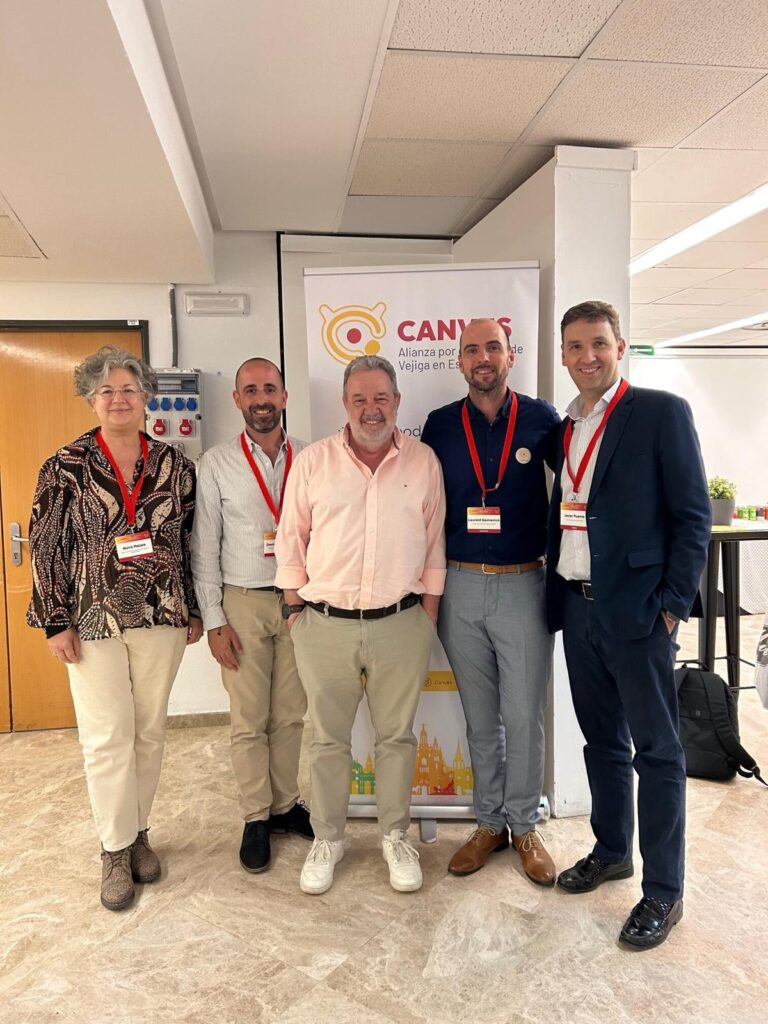
What we took away from our experience is that we didn’t want another patient to go through the uncertainty we went through.
David Garrigues Ronda – Bladder cancer care partner
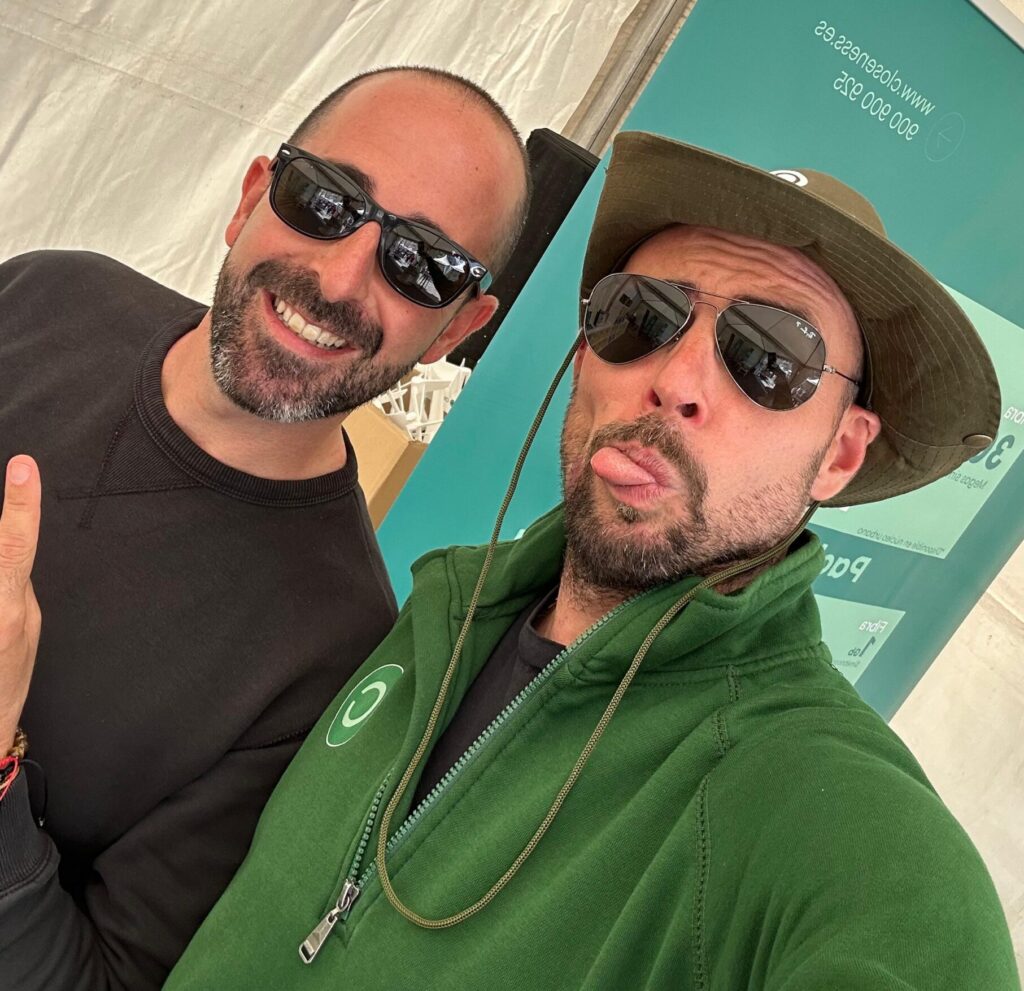
I Want People to Know: You Are Not Alone
More than anything else, I would tell someone who is already a bladder cancer patient what I have told many patients before.
Talk to family, talk to friends. Ask for help. Don’t be alone. And above all, don’t miss any doctor’s appointments.

Special thanks again to Johnson & Johnson for supporting our patient education program. The Patient Story retains full editorial control over all content.
Laurent’s Story
Laurent’s story, with David by his side every step of the way, is a reminder that living with bladder cancer can be filled with hope and learning to advocate for yourself can lead to opportunities to help others. Watch Laurent’s video.

Inspired by David's story?
Share your story, too!
More Bladder Cancer Stories
Laurent Gemenick, Bladder Cancer
Symptom: Presence of blood in urine
Treatment: Surgery: transurethral resection of bladder tumor or TURBT
Jon T., Locally Advanced Muscle-Invasive Bladder Cancer
Symptom: Darkening urine, blood in urine, dull right flank pain
Treatments: Surgery(transurethral resection of bladder tumor or TURBT), antibody-drug conjugate, chemotherapy
Michael V., Bladder Cancer (Non-Invasive High-Grade Papillary Urothelial Carcinoma), Stage 1
Symptoms: Frequent urination, burning sensation when urinating
Treatments: Surgery (transurethral resection of bladder tumor or TURBT), immunotherapy (Bacillus Calmette-Guérin or BCG treatment)
Dorinda G., Bladder Cancer
Symptom: A significant amount of blood in the urine
Treatments: Surgery (transurethral resection of bladder tumor/TURBT, surgery for papillary lesion), immunotherapy (BCG), chemotherapy
Healing Together: A Mother and Daughter Navigate High-Grade Bladder Cancer
Mary Beth’s story about caregiving starts with an important awareness message about female bladder cancer symptoms.
Danny G., Non-Muscle Invasive Bladder Cancer
Symptoms: Fatigue, back pain, erectile dysfunction, nausea
Treatments: Surgery (transurethral resection of bladder tumor or TURBT), chemotherapy, immunotherapy
